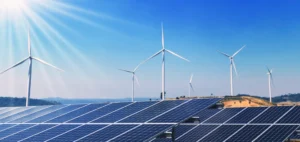FNME-CGT, the leading trade union in the French energy sector, has appointed Fabrice Coudour as its new secretary general. Aged 43 and originally from Roanne, in the Loire region, he replaces Sébastien Ménesplier, who led the union for eight years. This transition comes as the federation remains involved in major issues, notably the competitive tendering of hydropower concessions, a subject of tension with the European Union.
A term marked by social protest
Sébastien Ménesplier, 50, served two terms as head of the union. His second mandate was extended due to the Covid-19 health crisis. He gained prominence during the protests against France’s pension reform, during which targeted power cuts were carried out against officials supporting the changes. Despite stepping down from FNME-CGT leadership, he remains a member of the CGT’s confederal bureau, alongside general secretary Sophie Binet.
A background in hydropower
Fabrice Coudour is an experienced figure in energy-sector trade unionism. Having joined CGT in the early 2000s, he served as general secretary of CGT Énergie Savoie from 2013 to 2020. He is the first FNME-CGT secretary general to come from the hydropower sector, a particularly sensitive area in discussions with Brussels over the competitive tendering of hydropower concessions. This issue has been a point of contention between France and the European Union, with some industry stakeholders opposing the opening of these strategic infrastructures to competition.
Union and industry challenges
FNME-CGT plays a central role in negotiations surrounding energy transition and electricity market regulation in France. Under Fabrice Coudour’s leadership, the union will have to navigate a changing energy landscape, shaped by the rise of renewable energies and debates over energy sovereignty. His stance in discussions with the government and European institutions will be closely monitored by industry players.






















